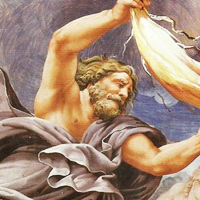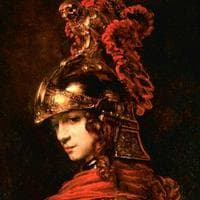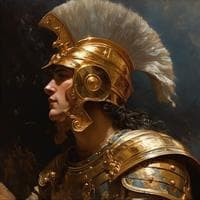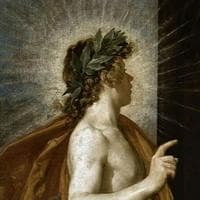Creon MBTI -Persönlichkeitstyp
Persönlichkeit
"Welcher Persönlichkeitstyp ist {profilename}? {profilename} ist ein {MBTI} -Persönlichkeitstyp in MBTI, {enneagram} - {iv} - {tritype} in EnneArgram, {big5} in Big 5, {socionics} in Socionics."
Why is he an 8? This typing seems to be only based on the idea that anyone in a position of authority who is aggressive or controlling is automatically an 8. Where is the lust, or rebellion, or sense of visceral justice that leads to him lashing out in revenge as opposed to a more rigid sense of justice we see in 1s and social 6s? So having established he's not an 8, it might be easy to type him a 1, but I think his motives for so strictly adhering to the laws of Thebes are motivated less by anger at how people do not follow the rules and are not good, but by a far more impersonal motive of fear that if people don't tow the line and do their duty, the city and society will fall apart. To show this with some quotes from him in Antigone: "I will never hold my tongue if I see that our city is in harm’s way! Nor will I ever make friends with an enemy of Thebes. Because I know one thing absolutely: that our safety relies on us travelling upon a steady ship. Only then can we make friends. It is by these laws that I will hold our city strong." - Here we can see his motivation of fear, of feeling you must know who to trust and keep things stable or things will all fall apart because the world is insecure like that. This is the motivation he gives for making the law that Polynieces should not be buried - not that he is angry and resentful at him for what he has done and believes in a harsh punishment, but that taking such measures are necessary for safety. He does later cite a motivation of that the gods would not honor evildoers like Polyneices by letting them be buried, but it seems like only a secondary motivation to his primary one that having people follow authority is how you stay safe. And then after he discovers Antigone was responsible for the burial: "Were she to gain the upper hand in this and keep it with impunity she would be seen as being the leader of this land and not I!" Again, it's impersonal - he's not so much mad at Antigone for being bad by burying a horrible person, but scared that letting someone who's not the leader, and a woman at that, be able to defy the leader will create a precedent that leads to everything falling apart. When he argues with Antigone he cites honor and the wrongness of what she is doing, but to the chorus he confesses his deeper motivations. Another reason he is more likely to be a 6 than a 1 is what we see of him in Oedipus the king. He doesn't have any interest in ruling and doesn't see why someone would want it over having the privileges of being of high status without the stresses of power, he is just loyal and dutiful to Oedipus. 1s have desires to reform everything around them, they would prioritize the ability to have power to control their surroundings over being able to live a content and pleasurable life. This is also why I put sp as his second IV over sx, his default strategy besides the obvious social one is to try to be harmless and unintimidating to those in power and not confront his fears, it's only when he ends up in power that he takes an attitude of having to be "tough on crime" (which can be attributed to being so 6 anyway). And even then he talks about wanting to have a city that makes friends with others rather than thinking they must be tough and intimidating to the other cities.
Biografie
Regent King of Thebes between Laius and Oedipus, then again following Oedipus' exile and the deaths of his sons. Brother-in-law to Laius via his sister Jocasta, Uncle/brother-in-law to Oedipus also via Jocasta, and father-in-law of Heracles via his daughter Megara. Plays a major role in both Oedipus Rex and Antigone.
















